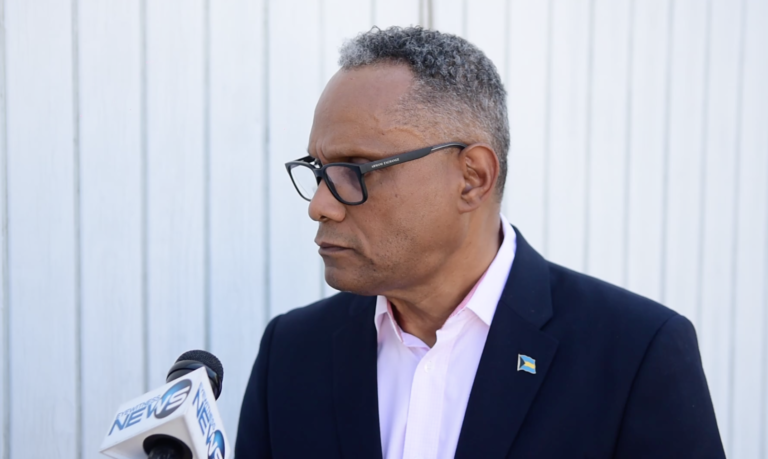Darville: Prioritize manufacturing as “one of the key areas for investment and growth”
NASSAU, BAHAMAS — Manufacturing must be developed as a central pillar to the Bahamian economy, decreasing this nation’s dependence on imports and bringing in more foreign currency through exports, a Senator said yesterday.
Senator Dr Michael Darville, the Progressive Liberal Party’s (PLP) candidate for Tall Pines, while touring the Switcha facility yesterday noted that COVID-19 has exposed the flaws in the country’s current economic model.
“Moving forward, diversification of our economy is not optional; it is mandatory if we want to better weather economic shocks like COVID-19 and Hurricane Dorian,” said Darville.
“Manufacturing must be developed as a central pillar to our economy, decreasing our dependence on imports and bringing in more foreign currency through exports.
“In the short to medium-term, we must establish stronger links between light manufacturing industries and the tourism sector as travel slowly returns to normal with the global rollout of COVID-19 vaccines.”
He added: “There is no reason why we cannot negotiate for key inputs in the construction and operation of tourism and hospitality-based facilities to be further supplied by local businesses and manufacturers based on our established capacity.
“Our population may be below 400,000, but when we give Bahamian businesses increased access to the millions of tourists who visit our country each year, we significantly expand the market size and revenue potential for local business owners.
“This is a key initiative that will be undertaken by a Progressive Liberal Party (PLP) government as a part of our Economic Plan to create greater equity and opportunities for Bahamians in tourism.”
According to Darville, equitable opportunities for Bahamian business owners and manufacturers in every sector must be created.
“Strategic actions must be taken to close the perception gap between the amount of support and incentives offered to foreign direct investors seeking to launch businesses in our borders and the amount of support given to Bahamian investors,” he said.
“If we want to nurture a robust manufacturing sector, our people must not feel excluded while we disproportionately pursue and roll the red carpet out for foreign-owned enterprises.”
Darville added: “While foreign direct investment remains a very important pillar of our economy, Bahamian innovation and entrepreneurship will also be a main driver of economic growth. Our actions as a government must demonstrate that fact.
“Bahamians do not only want to be laborers in this economy; they want to be owners.
“We must continue to increase financing opportunities for small and medium-sized businesses in all sectors, prioritizing manufacturing as one of the key areas for investment and growth.”
According to Darville, many of the outdated concessions must be replaced with updated laws that reflect the country’s anticipated economic development needs for the next five, 10 and 20 years.


